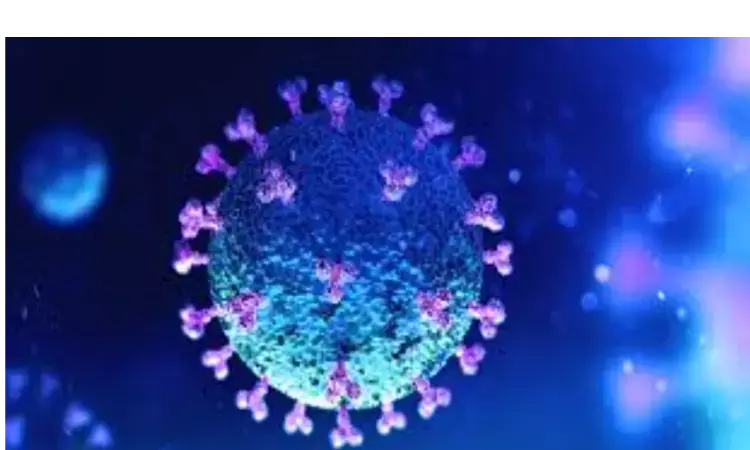- Home
- Medical news & Guidelines
- Anesthesiology
- Cardiology and CTVS
- Critical Care
- Dentistry
- Dermatology
- Diabetes and Endocrinology
- ENT
- Gastroenterology
- Medicine
- Nephrology
- Neurology
- Obstretics-Gynaecology
- Oncology
- Ophthalmology
- Orthopaedics
- Pediatrics-Neonatology
- Psychiatry
- Pulmonology
- Radiology
- Surgery
- Urology
- Laboratory Medicine
- Diet
- Nursing
- Paramedical
- Physiotherapy
- Health news
- Fact Check
- Bone Health Fact Check
- Brain Health Fact Check
- Cancer Related Fact Check
- Child Care Fact Check
- Dental and oral health fact check
- Diabetes and metabolic health fact check
- Diet and Nutrition Fact Check
- Eye and ENT Care Fact Check
- Fitness fact check
- Gut health fact check
- Heart health fact check
- Kidney health fact check
- Medical education fact check
- Men's health fact check
- Respiratory fact check
- Skin and hair care fact check
- Vaccine and Immunization fact check
- Women's health fact check
- AYUSH
- State News
- Andaman and Nicobar Islands
- Andhra Pradesh
- Arunachal Pradesh
- Assam
- Bihar
- Chandigarh
- Chattisgarh
- Dadra and Nagar Haveli
- Daman and Diu
- Delhi
- Goa
- Gujarat
- Haryana
- Himachal Pradesh
- Jammu & Kashmir
- Jharkhand
- Karnataka
- Kerala
- Ladakh
- Lakshadweep
- Madhya Pradesh
- Maharashtra
- Manipur
- Meghalaya
- Mizoram
- Nagaland
- Odisha
- Puducherry
- Punjab
- Rajasthan
- Sikkim
- Tamil Nadu
- Telangana
- Tripura
- Uttar Pradesh
- Uttrakhand
- West Bengal
- Medical Education
- Industry
Patients with previous COVID-19, at 84 percent lower risk of reinfection: Lancet

UK: A previous history of COVID-19 cuts the risk of reinfection by 84% and also lowers the risk of symptomatic infection during 7 months of follow-up by 93%, according to a recent study in The Lancet. The findings imply that previous SARS-CoV-2 infection induces immunity to future infections in most patients.
There is an urgent requirement of increased understanding on whether people who have recovered from COVID-19 are protected from future infection of the SARS-CoV-2 virus.
Victoria Jane Hall, Public Health England Colindale, Colindale, London, UK, and colleagues aimed to investigate whether antibodies against SARS-CoV-2 were associated with a decreased risk of symptomatic and asymptomatic reinfection.
For this purpose, the researchers performed a large, multicentre, prospective cohort study. The participants were recruited from publicly funded hospitals in all regions of England. The SARS-CoV-2 Immunity and Reinfection Evaluation study included participants who could remain engaged in follow-up for 12 months. Participants were excluded if they had no PCR tests after enrolment, enrolled after Dec 31, 2020, or had insufficient PCR and antibody data for cohort assignment. Participants attended regular SARS-CoV-2 antibody and PCR testing (every 2–4 weeks) and completed questionnaires every 2 weeks on symptoms and exposures.
At enrolment, participants were assigned to either the positive cohort (antibody positive, or previous positive PCR or antibody test) or negative cohort (antibody negative, no previous positive PCR or antibody test).
The primary outcome was a reinfection in the positive cohort or a primary infection in the negative cohort, determined by PCR tests.
Primary infections in the negative cohort were defined as a first positive PCR test and seroconversions were excluded when not associated with a positive PCR test.
The researchers enrolled 30 625 participants in the study, 51 participants withdrew and 4913 were excluded. A total of 25 661 participants (with linked data on antibody and PCR testing) were included in the analysis.
155 infections were detected in the baseline positive cohort of 8278 participants, collectively contributing 2 047 113 person-days of follow-up. This compares with 1704 new PCR positive infections in the negative cohort of 17 383 participants, contributing 2 971 436 person-days of follow-up.
Key findings of the study include:
- The incidence density was 7·6 reinfections per 100 000 person-days in the positive cohort, compared with 57·3 primary infections per 100 000 person-days in the negative cohort, between June, 2020, and January, 2021.
- The adjusted IRR was 0·159 for all reinfections compared with PCR-confirmed primary infections.
- The median interval between primary infection and reinfection was more than 200 days.
"A previous history of SARS-CoV-2 infection was associated with an 84% lower risk of infection, with median protective effect observed 7 months following primary infection. This time period is the minimum probable effect because seroconversions were not included. This study shows that previous infection with SARS-CoV-2 induces effective immunity to future infections in most individuals," wrote the authors.
"Further detailed studies on the longevity of antibody responses, assessment of reinfection rates under the challenge of the new lineages, and the effect of all COVID-19 vaccines introduced in the UK are underway in this cohort," they concluded.
Reference:
The study titled, "SARS-CoV-2 infection rates of antibody-positive compared with antibody-negative health-care workers in England: a large, multicentre, prospective cohort study (SIREN)," is published in the journal Lancet.
DOI: https://www.thelancet.com/journals/lancet/article/PIIS0140-6736(21)00675-9/fulltext#
Dr Kamal Kant Kohli-MBBS, DTCD- a chest specialist with more than 30 years of practice and a flair for writing clinical articles, Dr Kamal Kant Kohli joined Medical Dialogues as a Chief Editor of Medical News. Besides writing articles, as an editor, he proofreads and verifies all the medical content published on Medical Dialogues including those coming from journals, studies,medical conferences,guidelines etc. Email: drkohli@medicaldialogues.in. Contact no. 011-43720751


